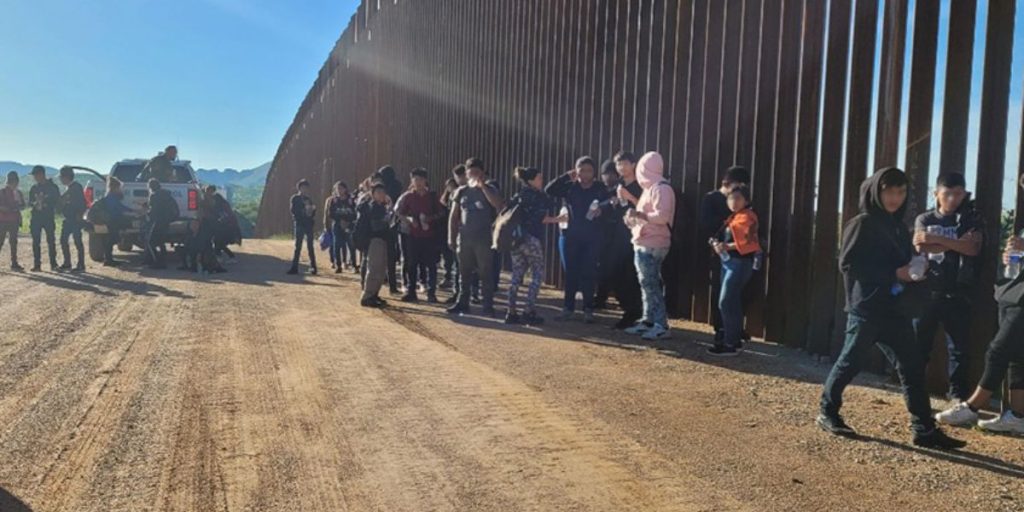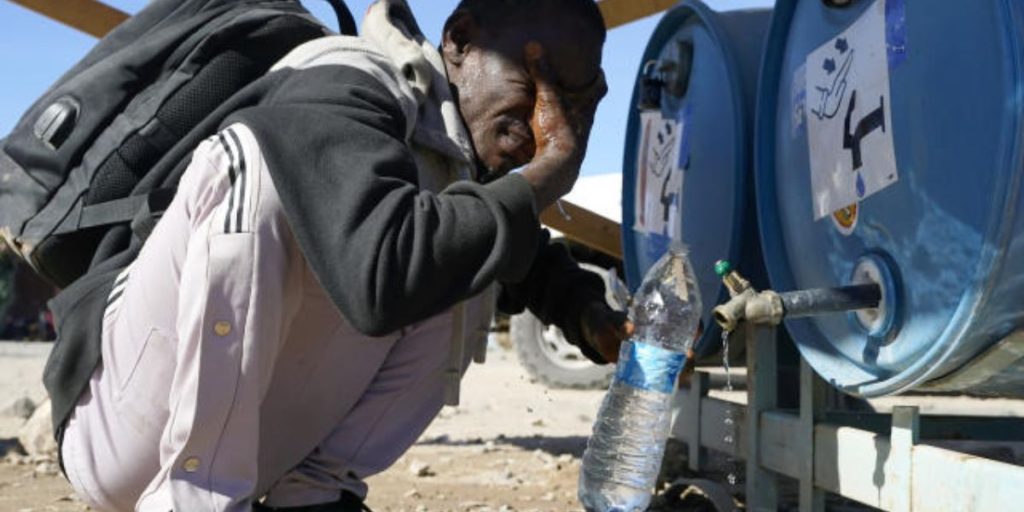Gerston Miranda and his wife were among thousands of migrants who recently arrived at this remote area on Arizona’s southern border with Mexico, sneaking into the country through a gap in the wall and walking 14 miles (23 kilometers) overnight with two school-aged daughters to surrender to Border Patrol agents.
“There is no security in my country,” stated the 28-year-old Ecuadorian, who lost his job after his employer was forced to close owing to illegal extortion. “You can’t work without security. You are unable to live.”
A shift in smuggling routes has brought an influx of migrants here from Senegal, Bangladesh, and China, leading the Border Patrol to seek assistance from other federal agencies and drawing attention to an issue vital in next year’s presidential elections.
With hundreds of migrants crossing in the area every day, the US government closed the nearby international crossing between Lukeville, Arizona, and Sonoyta, Mexico, on Monday indefinitely to free Customs and Border Protection officers assigned to the port of entry to assist with transportation and other support. In recent months, the DHS has also partially blocked a few other border crossings, including a pedestrian crossing in San Diego and a bridge in Eagle Pass, Texas.

Critics of the plan have included Arizona Democratic Gov. Katie Hobbs, the state’s two U.S. senators, the governor of Mexico’s Sonora state, and the leadership of the adjacent Tohono O’odham Nation. Hobbs encouraged President Joe Biden to relocate the 243 National Guard men who were already stationed in Tucson to assist in reopening the Lukeville crossing.
A dozen Border Patrol officials in olive green uniforms stood guard the morning after it was closed, over 400 migrants who had spent the night beside the tall wall of steel bollards, draped in shiny Mylar blankets they later dumped among saguaro cactus and Palo Verde trees.
In recent months, the Lukeville area has gained appeal as a crossing point from Mexico into the United States. It’s one of the most visible cases of migrants moving to a distant location, putting the Border Patrol on the trail.
Because Lukeville is so remote, Border Patrol staffing is limited, therefore traffickers in the Sinaloa cartel-controlled part of Mexico direct people there.

According to Chris Clem, a retired Yuma, Arizona, sector head, it is part of smugglers’ strategy to spread agents as thinly as possible, forcing highway checkpoints to close and other resources to be redirected for migrant processing. According to him, the remoteness puts “enormous strain” on the Border Patrol.
According to Art Del Cueto, vice president of the National Border Patrol Council in Tucson, the union wants harsher measures to dissuade migrants from coming. He claims the problem isn’t so much a lack of agents as it is a surplus of migrants.
The border is a key concern for Americans, particularly Republicans, heading into next year’s presidential elections, and immigration issues could be a negative for Biden, a Democrat, if he stands for reelection.
A national AP-NORC poll conducted in November revealed that over half of U.S. adults believe boosting border security should be a “high priority” for the federal government, with three in ten saying it should be a “moderate priority.” Republicans were more inclined to rate it as a high priority than Democrats.

